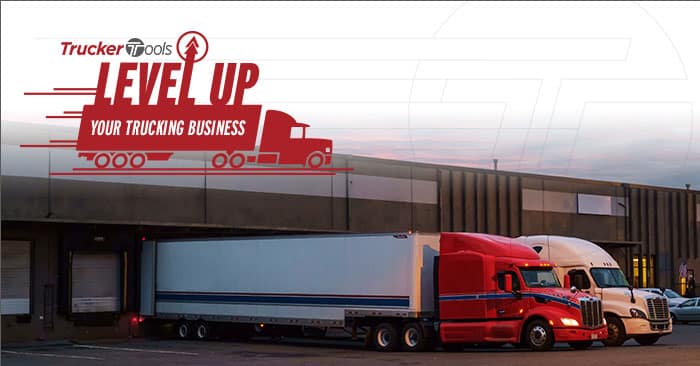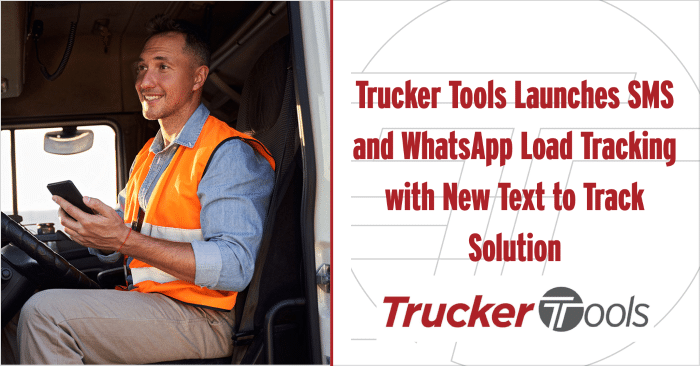Level Up Your Trucking Business: Three Bookkeeping Tips for Owner Operators and Small Fleets

In this blog series entitled Level Up Your Trucking Business, Trucker Tools is providing you with tips to help you maximize your revenue, build fruitful relationships with brokers and 3PLs, and create a foundation for a successful trucking business. We recently spoke with Barry Fowler, president and founder of Trucker Tax Tools, who’s been helping truckers and carriers with federal income tax filing and audits, bookkeeping, financial planning and other financial matters for the last 20 plus years.
“I’ve been doing taxes, bookkeeping and accounting since I’ve been knee high to a grasshopper — I won’t tell you how long that is,” Barry said. “We’ve been doing some trucker bookkeeping since 2000. A few years ago, we decided to open up the doors to anyone and everybody who’s looking for good trucking bookkeeping with someone who knows how to do it.”
“I’ve been doing taxes, bookkeeping and accounting since I’ve been knee high to a grasshopper — I won’t tell you how long that is,” Barry said. “We’ve been doing some trucker bookkeeping since 2000. A few years ago, we decided to open up the doors to anyone and everybody who’s looking for good trucking bookkeeping with someone who knows how to do it.”
Fowler’s company, Trucker Tax Tools, has 45 locations through the country staffed by professionals who specialize in working with owner operators and fleets. When we spoke with Barry, we asked him for his top bookkeeping tips for truckers and carriers, which we share here!
1. Create a Bookkeeping System To Track Your Expenses, Profits and Losses
According to Barry, the biggest bookkeeping mistake that truckers and fleets often make is not doing any! When you don’t keep accurate financial records for your owner operator or carrier business, you’re left to guess on your yearly income taxes, which is likely to trigger an audit. If you need help setting up a bookkeeping system for your owner operator or carrier business, be sure to check out the bookkeeping seminars that Barry teaches for the Owner-Operator and Independent Drivers Association (OOIDA).
“For the last three years, we’ve been working closely with OOIDIA and now I speak at their Truck to Success seminars that are all about trucker bookkeeping and trucker taxes,” said Barry. “Truckers need to understand what’s going on with their settlement statements, what they’re able to deduct, and the tax implications of everything they do. We explain things in terminology that is easy to understand. It’s a vital part of our business and we enjoy working with truckers. ”
2. Understand Your Business Entity Type, Tax Classification
When you set up your owner operator or carrier business, you have several options for structuring your business that impact bookkeeping and tax filing. Setting up your business as an LLC (limited liability company) allows you to separate your personal assets from your business debts and liability. Many owner operators go the LLC route when they set up their businesses. As a sole proprietor LLC, you need to track your expenses and profits, but you don’t necessarily need to pay yourself via a payroll system. If you choose an S-corporation tax designation, which is more common for trucking companies, you’re considered a pass-through entity and will have to run payroll to pay yourself as the owner of the business, as well as your employees.
According to Fowler, Trucker Tax Tools can help you determine the best choice for your situation and help you understand how these designations impact your tax burden and the way you keep your financial records. The company also offers payroll services to truckers and carriers.
“My wife manages our entire trucker bookkeeping department and the only bookkeeping clients we have are truckers,” said Barry. “We do truckers’ bookkeeping and if they become an S-corp, we’ll do their payroll and their taxes. We’re a one-stop shop and hopefully we always keep them out of trouble.”

3. Take and Record Your Per Diems Correctly
Per diem pay is a type of non-taxable IRS reimbursement that covers meal and other expenses that you have as a truck driver when you’re away from home. Taking your per diems correctly is important because doing so can increase your take-home pay and reduce your gross income, which means you owe the IRS less money. In order to qualify for a per diem, you must be away from home for the night.
You have two options for taking your per diems: you can either track how many days/nights you were on the road and take 80 percent of the per diem rate for each day or keep all of your receipts related to your nights away from home and deduct 80 percent of your total expenses. Keep in mind that you have to choose one of these two ways to take your per diems. You can’t do a mix of both. It’s important to keep accurate logbooks so that you can calculate your per diems correctly and have the proper documentation on hand if you’re ever audited by the IRS.
When we spoke with Barry, he told us that not taking per diems or calculating them incorrectly can end up costing truckers a lot of money in the end. Trucker Tax Tools’ free smart phone bookkeeping app makes it easy for you to upload receipts and track your per diems.
To learn more about Barry Fowler and Trucker Tax Tools, visit https://truckertaxtools.com/.
Read Level Up Your Trucking Business: Four Income Tax Pitfalls To Avoid as an Owner Operator for more insights from Barry Fowler. To download Trucker Tools’ free app for truckers, visit https://www.truckertools.com/carriers-toolkit/.





